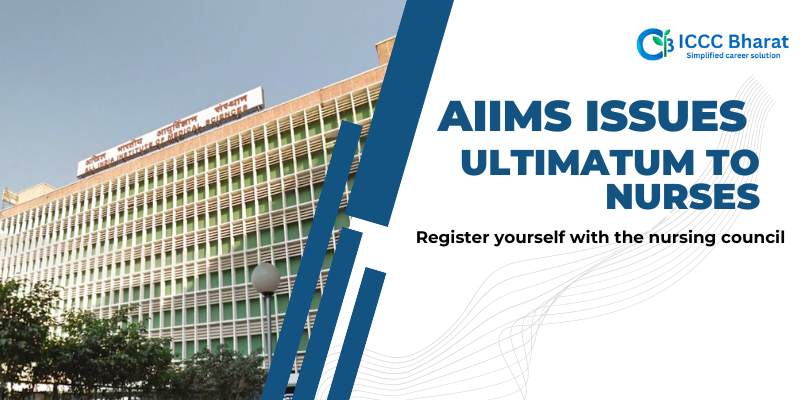NEW DELHI :- In a recent development, AIIMS, New Delhi, has issued a stern ultimatum to its nursing staff regarding registration with the Delhi Nursing Council (DNC). The directive, conveyed through an official order on Tuesday, emphasizes that failure to comply within one month will result in strict disciplinary actions.
The order mandates that all nursing staff at AIIMS, New Delhi, must register themselves with the DNC upon joining and ensure timely renewal of their registration thereafter. Non-compliance will lead to consequences, as stated in the circular. The institute has underscored the importance of valid and renewed registration for all nursing staff and pharmacists.
This move by AIIMS follows earlier objections raised by the nurses’ association, which contested the necessity of mandatory registration with the DNC, especially if nurses are already registered with nursing councils in their respective home states.
In response to these objections, AIIMS clarified its stance in the order. Citing the Indian Nursing Council’s regulations from 2019, AIIMS emphasized that registered nurses, auxiliary nurse midwives, and lady health visitors are required to obtain reciprocal registration when transitioning between state nursing councils. This clarification aims to address any confusion regarding the registration requirements for nurses at AIIMS.
However, the directive has sparked dissent among some members of the nursing community. The president of the AIIMS nurses union raised concerns, citing a potential violation of a Supreme Court order. They highlighted the plight of experienced nurses who have served at the institute for over three decades, expressing apprehension that these nurses may not meet the educational requirements mandated by the Delhi Nursing Council.
The conflicting viewpoints underscore the complexity of regulatory compliance within the healthcare sector. While AIIMS aims to align its practices with prevailing regulations, concerns about the practical implications for long-serving nurses raise pertinent questions about balancing regulatory standards with recognition of experience and expertise.
As the deadline approaches, it remains to be seen how stakeholders navigate these challenges and whether a resolution that addresses both regulatory compliance and the concerns of experienced nursing staff can be reached.
